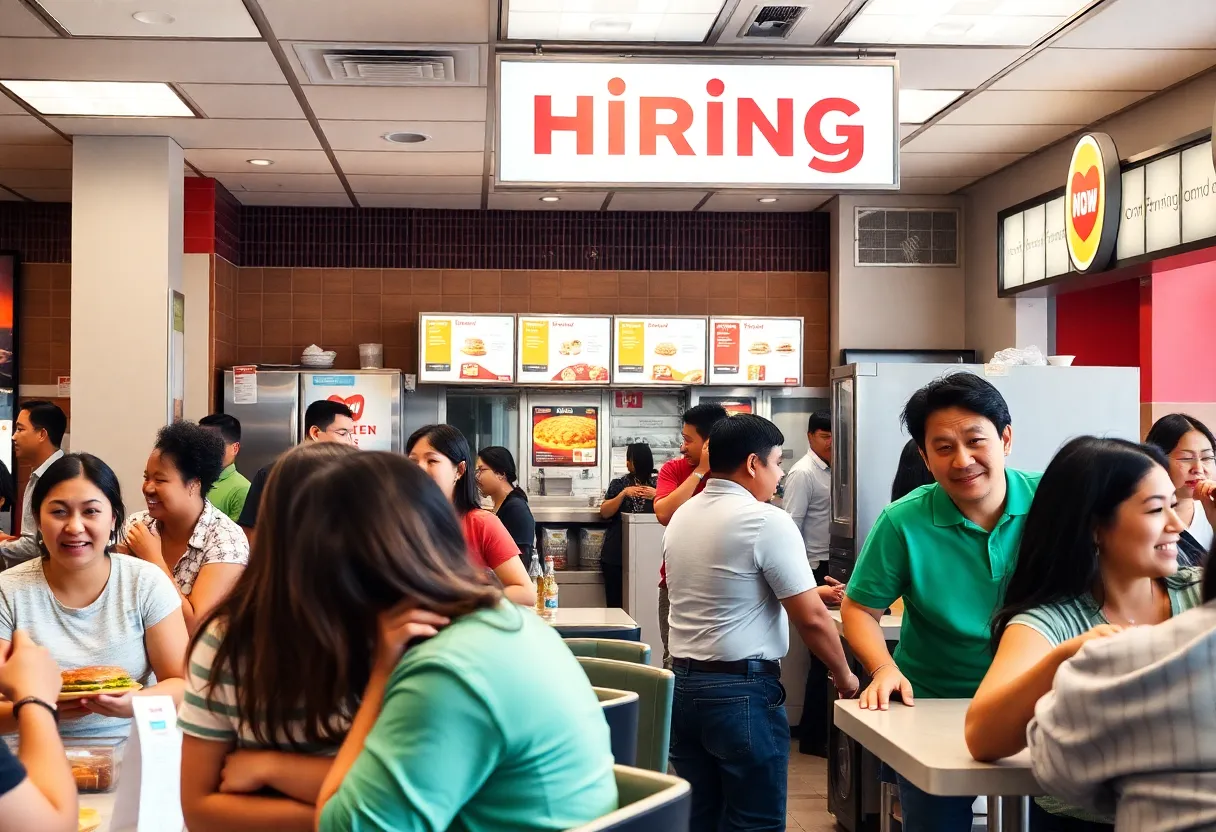News Summary
California’s fast-food minimum wage will rise from $16 to $20 per hour starting April 2024 as part of Assembly Bill 1228. This wage increase has prompted major fast-food chains to adjust menu prices and has led to job losses in the sector, with a reported 3.1% decline in employment. Business owners are experiencing reduced hours and hiring, while the quality of job applicants has improved. The debate continues over the long-term effects of this wage increase, as fast-food workers seek to push for further raises amidst operational challenges for restaurant owners.
California has implemented one of the highest fast-food minimum wages in the nation, increasing it from $16 to $20 per hour starting in April 2024. This significant wage hike has prompted major fast-food chains, including McDonald’s, Subway, Chipotle, and Burger King, to elevate their menu prices to maintain profit margins. However, the repercussions of this legislative change, embodied in Assembly Bill 1228, are already becoming apparent, highlighting a clash between job losses and improved worker retention in California’s fast-food sector.
According to several trade groups, the new minimum wage law has led to a considerable decline in employment within the fast-food industry, with limited-service restaurants witnessing an approximate 3.1% decrease in jobs, amounting to more than 22,600 positions lost since the wage increase took effect. However, Governor Gavin Newsom’s office maintains that the negative impact on employment is overstated.
Mike Keung, an owner of seven McDonald’s locations in Los Angeles County, has observed a clear fluctuation in business dynamics since the wage increase. Keung reported a 16% reduction in restaurant hours and a cut in his employee roster from 413 to 384. This accounts for nearly a 10% decrease in staff numbers. While Keung has avoided layoffs, he noted hiring has plummeted significantly, falling by over 50%. Before the wage increase, 317 people were hired, whereas only 140 new hires have been made since.
Despite a reduction in hours and hiring, the quality of applicants has reportedly improved, with a notable 40% rise in job applications at his restaurants. This increase in applications is attributed to the enhanced wage rates enticing a diverse pool of candidates, including individuals from various professions such as teaching, who are seeking supplementary income.
The transition to a higher minimum wage has presented challenges for business performance, as Keung has experienced a 16% drop in gross sales and customer visits. Customers appear hesitant to dine out, likely due to expectations of ongoing price increases that stem from the wage legislation. In response to these conditions, Keung has attempted to promote menu items through value meals, though these promotions have not sufficiently countered the adverse financial effects of AB 1228. Additionally, the average bill per customer has decreased by 10% year-over-year, further crippling revenue streams.
As the financial strain mounts, Keung has had to reassess his investment in local community support, noting a decrease in his capacity to contribute to donations and fundraisers. This situation has, in turn, led to cuts in employee benefits and opportunities that were previously available to staff.
Turning to the broader landscape, there are approximately 635 franchise restaurants in Southern California managed by about 90 individual owner-operated families, debunking the common perception that fast-food franchises are predominantly large corporations. While California’s fast-food minimum wage elevates workers above other minimum wage earners within the state, thereby enhancing financial stability for some, it has concurrently resulted in reduced hours for many employees.
Economists continue to debate the full impact of the wage increase, with division on whether job losses can solely be attributed to the new minimum wage or if they result from additional economic factors, including sluggish growth and population decline. Concurrently, the state-established Fast Food Council holds the authority to adjust minimum wage annually based on inflation, or by 3.5%.
Fast-food workers are advocating for a nominal wage increase to $20.70 to remain competitive with rising state minimum wages. In contrast, restaurant owners are expressing strong opposition to further wage hikes, citing existing operational difficulties stemming from the current wage law. This ongoing situation reflects the complexities and challenges of balancing fair wages with sustainable business practices in California’s fast-food industry.
Deeper Dive: News & Info About This Topic
- CNN: California Fast Food Wage Hike
- Wikipedia: Minimum Wage
- KTLA: McDonald’s Owner Discusses Minimum Wage Impact
- Google Search: California Minimum Wage Impact
- Santa Monica Daily Press: Minimum Wage Impact Debate
- Google Scholar: Minimum Wage Impact
- California Employment Law Report: Preparing for Minimum Wage Hike
- Encyclopedia Britannica: Minimum Wage
- The Guardian: California Fast Food Minimum Wage
- Google News: California Fast Food Wage Hike

Author: Anaheim Staff Writer
The Anaheim Staff Writer represents the experienced team at HEREAnaheim.com, your go-to source for actionable local news and information in Anaheim, Orange County, and beyond. Specializing in "news you can use," we cover essential topics like product reviews for personal and business needs, local business directories, politics, real estate trends, neighborhood insights, and state news affecting the area—with deep expertise drawn from years of dedicated reporting and strong community input, including local press releases and business updates. We deliver top reporting on high-value events such as major conventions at the Anaheim Convention Center, including NAMM and VidCon, exciting games at Angel Stadium and Honda Center, and developments at Disneyland Resort Our coverage extends to key organizations like the Anaheim Chamber of Commerce and Visit Anaheim, plus leading businesses in hospitality, entertainment, and innovation that power the local economy As part of the broader HERE network, including HERECostaMesa.com, HEREHuntingtonBeach.com, HERESantaAna.com, and HERELosAngeles.com, we provide comprehensive, credible insights into Southern California's dynamic landscape.




